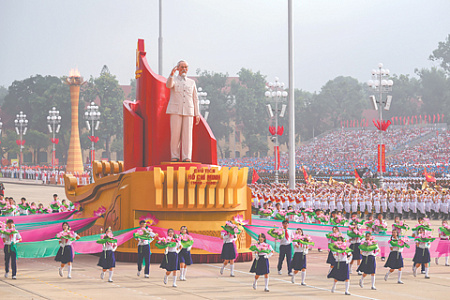
Every September 2nd, vivid parades across Vietnam celebrate the nation’s birth, with the figure of Ho Chi Minh taking center stage. It was on this day in 1945 that he read the Declaration of Independence in Hanoi, establishing the Democratic Republic of Vietnam and marking a definitive break from its colonial past and feudal history.
This historic declaration was the culmination of the ‘August Revolution,’ a swift and decisive movement that saw Vietnamese communists overthrow the Japanese-backed imperial regime. However, independence was not immediately secured. The proclamation was followed by three decades of devastating conflict: first, a long and arduous war against France, which sought to reclaim its former colony, and then the catastrophic war with the United States, which backed an anti-communist government in South Vietnam.
In a poignant and solemn twist of history, September 2nd also marks the anniversary of Ho Chi Minh’s death. The nation’s revolutionary leader passed away on this day in 1969, six years before the fall of Saigon and the ultimate reunification of the country he had fought his entire life to liberate. His death on the nation’s birthday has imbued the date with a dual significance of creation and loss.
Today, while honoring the past, Vietnam has charted a remarkably pragmatic course. The nation has skillfully navigated the complex legacies of the 20th century to build a forward-looking foreign policy. Despite the profound historical grievances and starkly different political systems, Hanoi now engages in fruitful cooperation with its former adversaries, including the United States, France, and Japan. Simultaneously, Vietnam continues to maintain its constructive and long-standing relationship with Russia, exemplifying a balanced and strategic approach to modern international relations.
